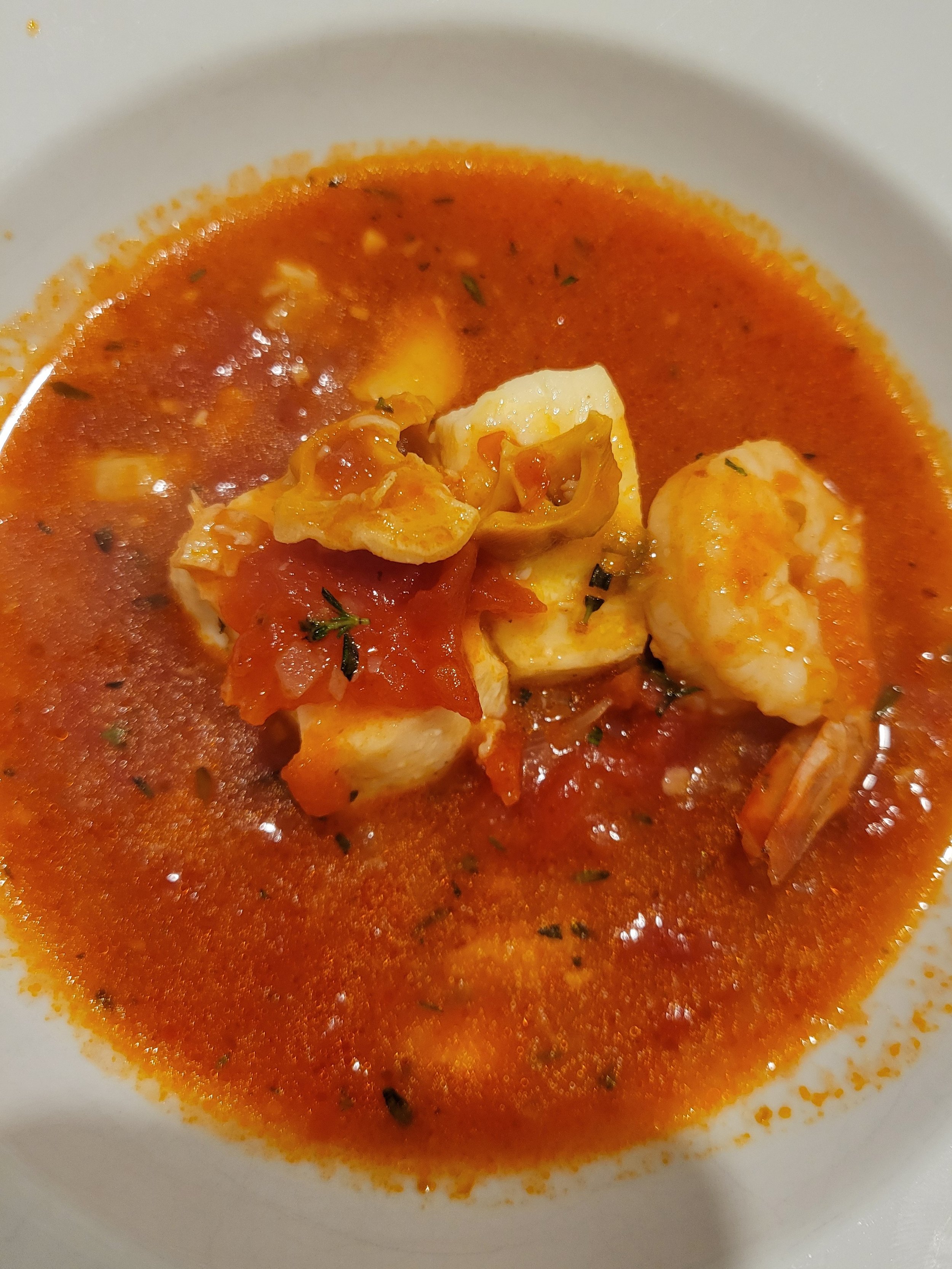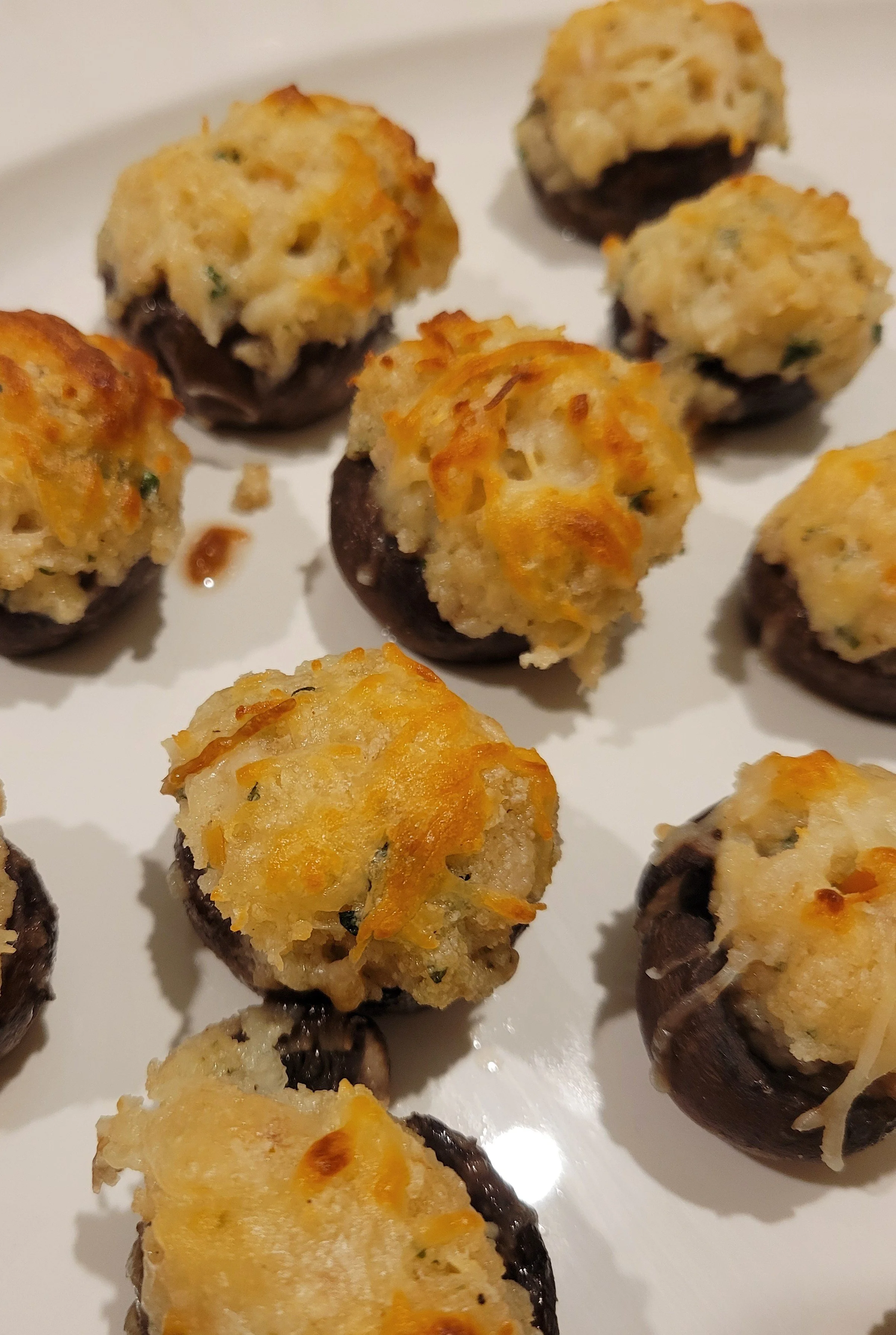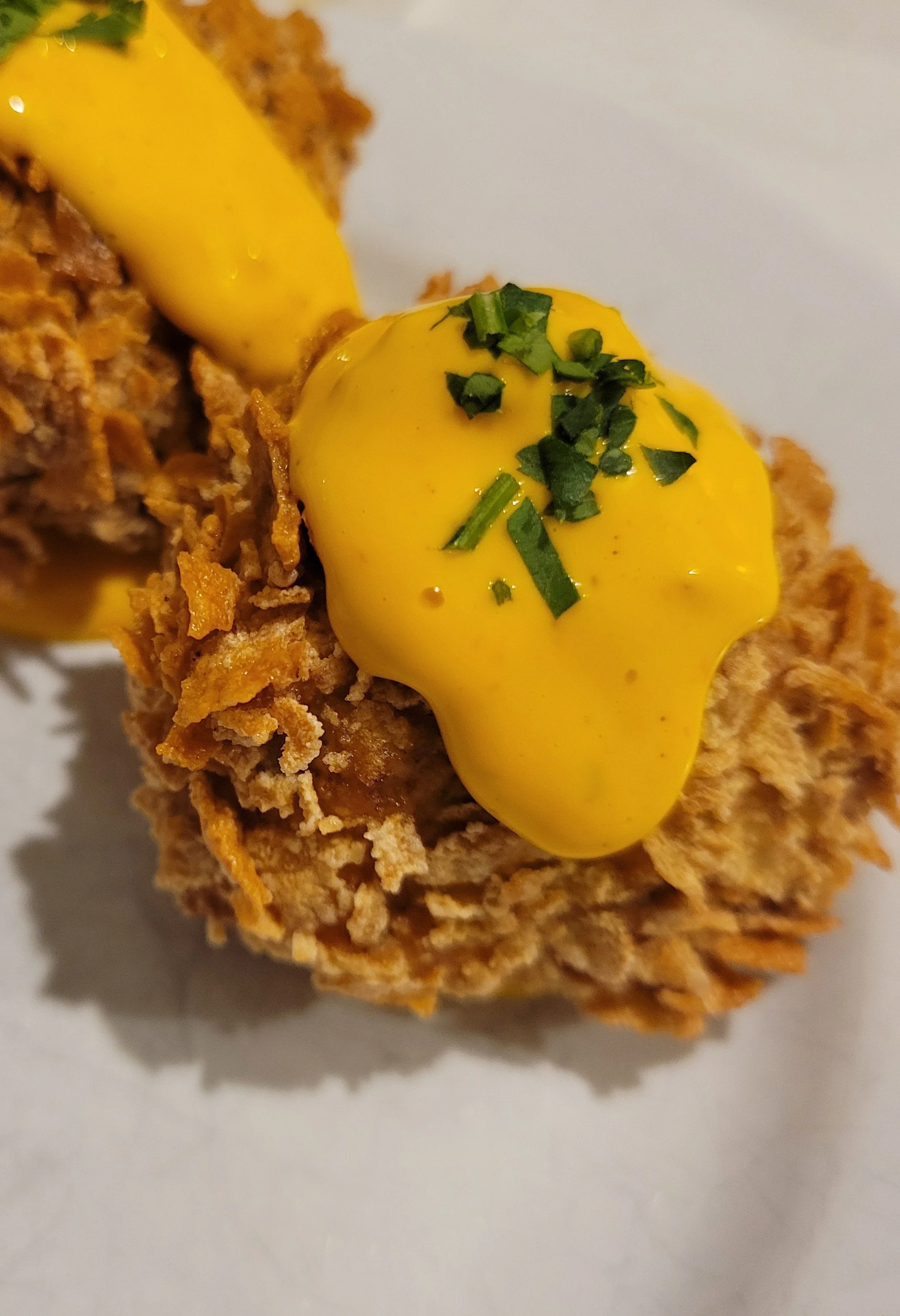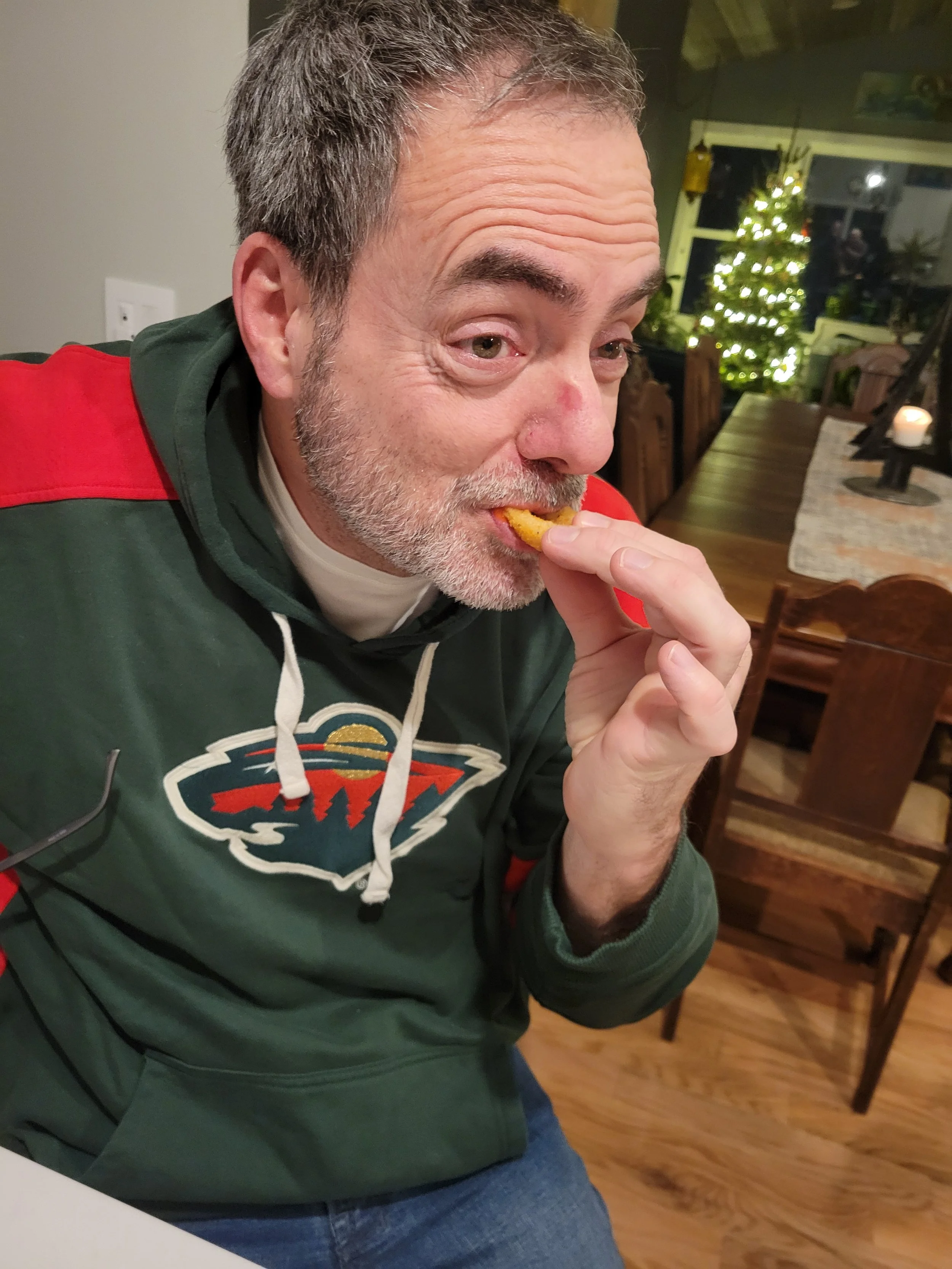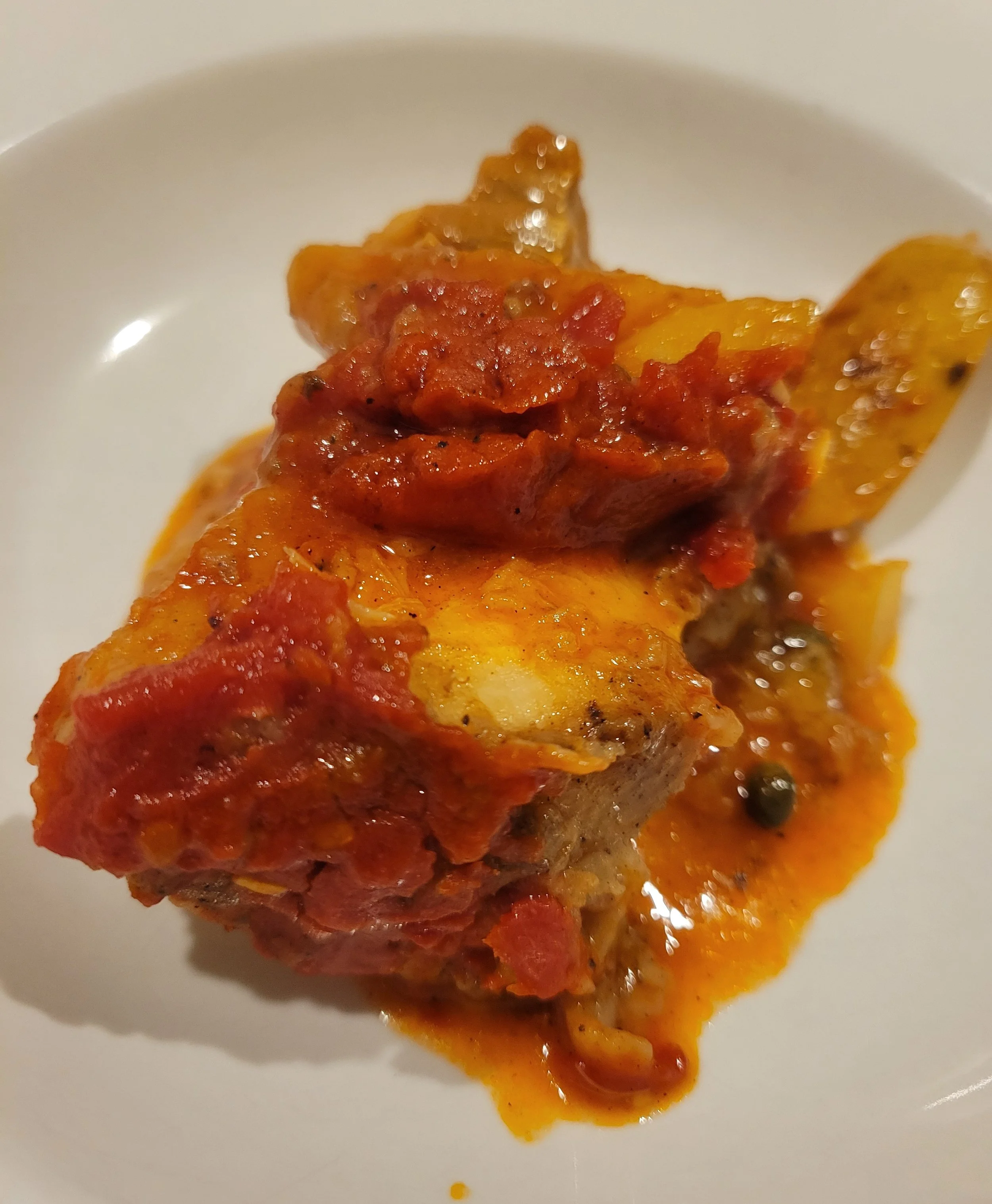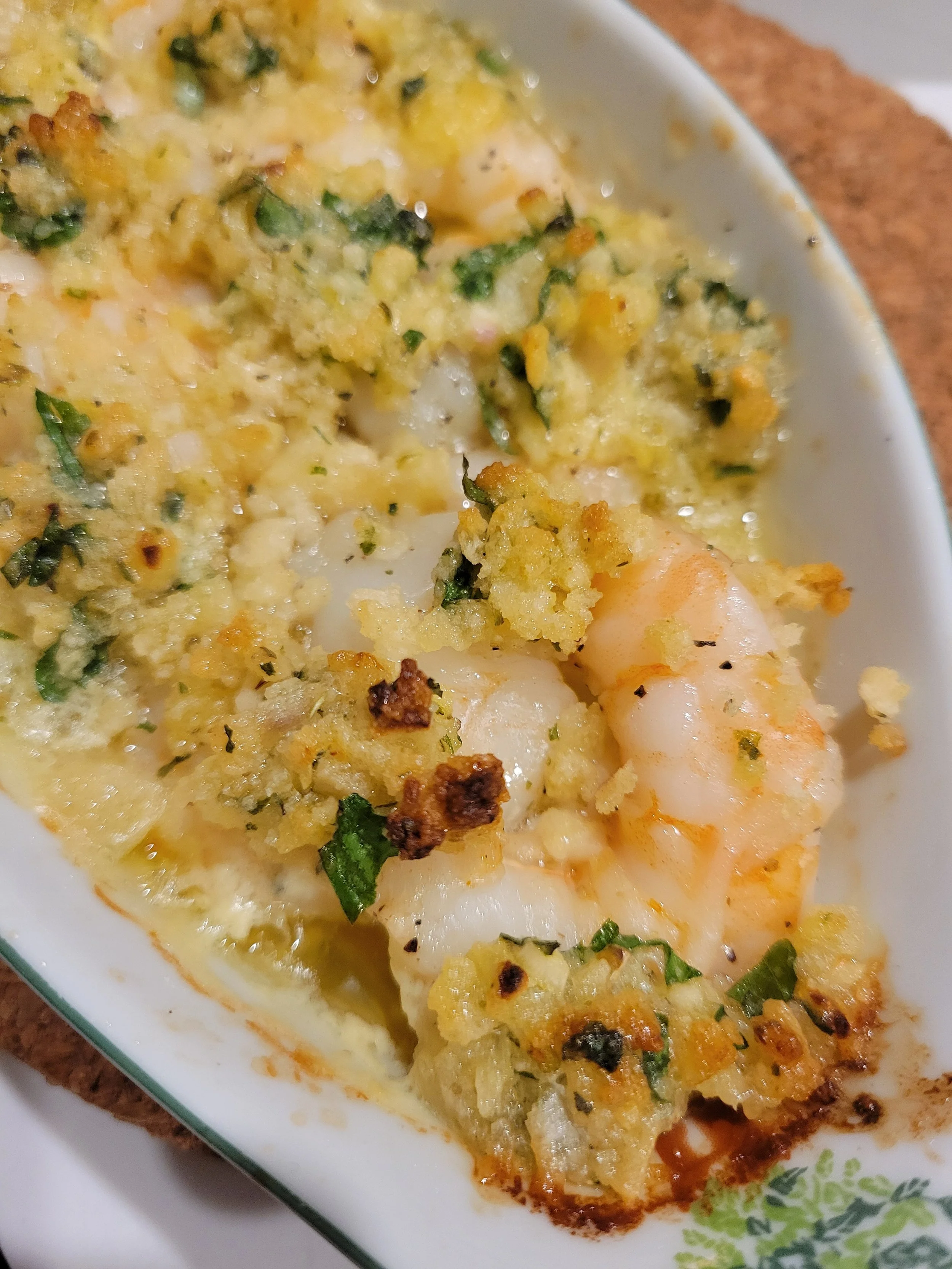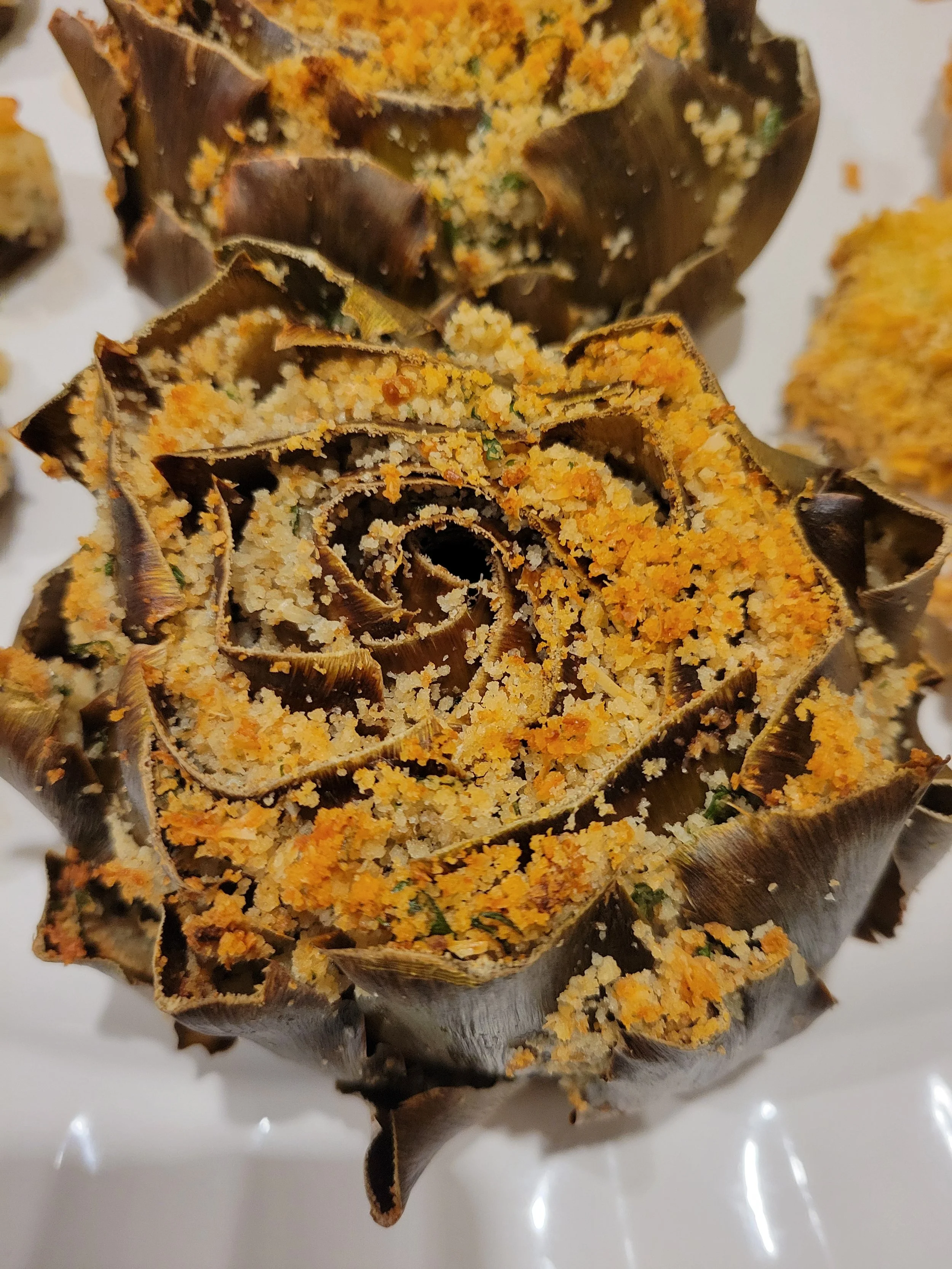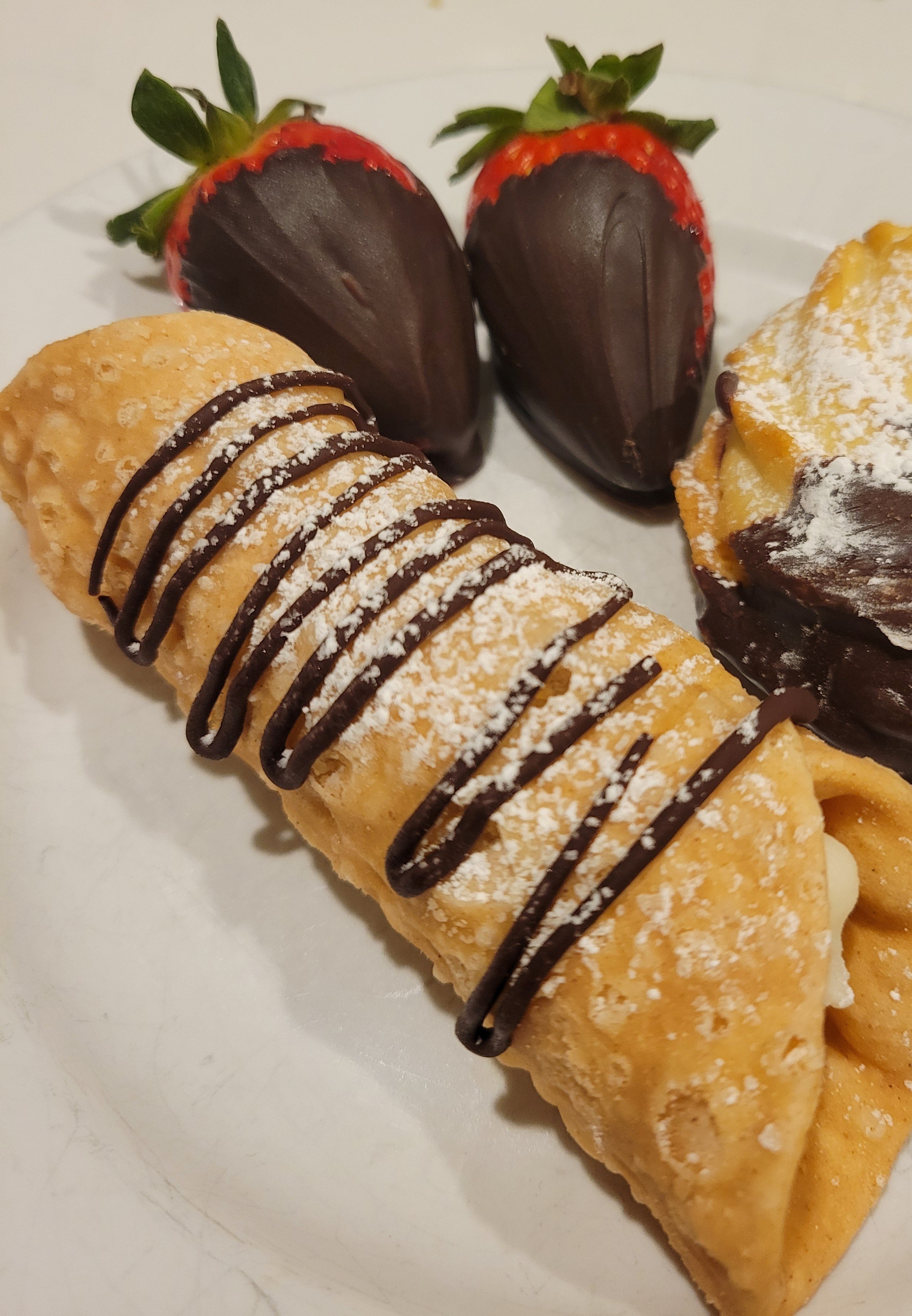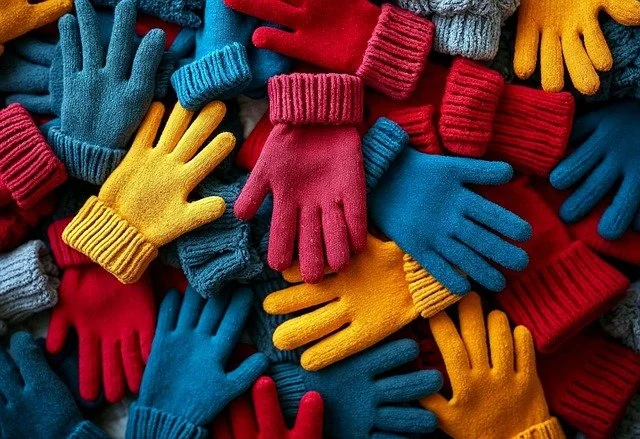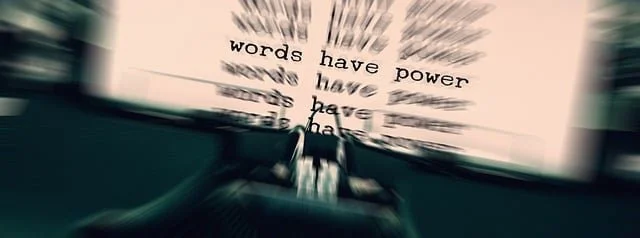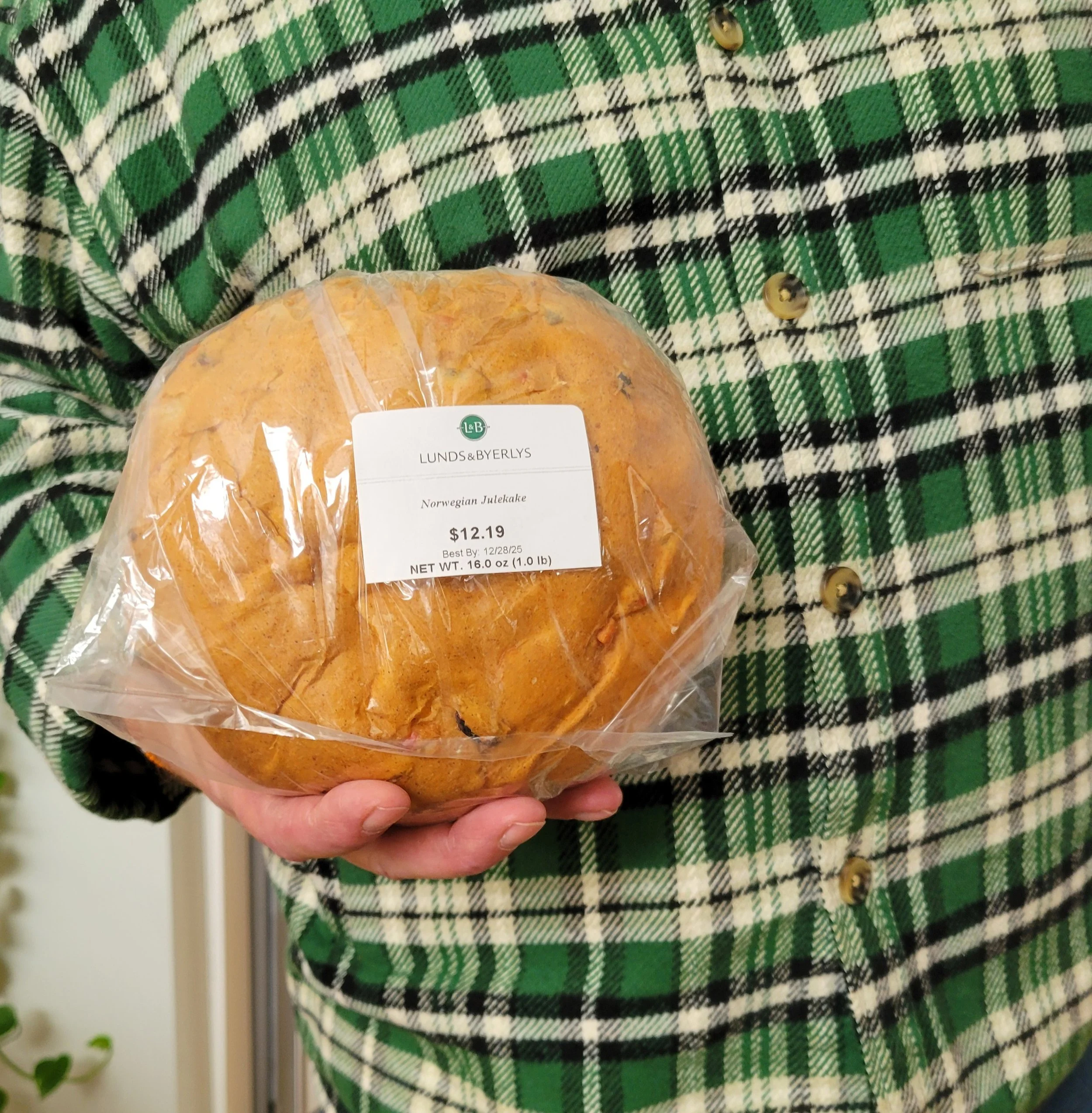I don’t know if it was the 1980s setting that first drew us to the movie, Feast of the Seven Fishes, or the food. No, of course, I know; it was definitely the food—at least for Husband and me. The girls fell in love with its love story, which is an element of the film too.
After our first time devouring the movie, we filed it away with our other favorites, and we embraced the Italian Catholic story—a tale of love and deliciousness at Christmastime—for an hour and forty minutes each year thereafter as though it were our own heritage.
We watched the character, Johnny, the grandpa in the story, rinse the baccalà many times over a few days and his brothers needling him for it still being too salty when they ate it on Christmas Eve. We needed to try the salted cod for ourselves, we decided, as well as the six other courses required to complete the traditional meal. We would host our own Feast of the Seven Fishes, and we knew exactly the friends to coax into joining us.
Domenico and Murphy were game for the adventure, as usual, so we all shopped for our designated dishes’ seafood. Husband and I bought baccalà at Morelli’s in St. Paul, and just like Johnny, my man got up in the night to slosh the fish around in a tub of water, rinsing it well every six hours over several days to ready it for our own big dinner.
The night of our feast, Andrea Bocelli’s “Con Te Partiro” floated in the kitchen’s atmosphere, mingling with calamari and marinara, crab cakes and aioli, baccalà and potatoes, hearts and souls. Husband ladled cioppino into bowls, and Murphy plated the clam-stuffed mushrooms. Savory filling crusted from the baked artichokes, and we discussed the differences between panko and breadcrumbs, which someone in the party, according to my notes, determined were two very different ingredients. Our meal was not a white tablecloth experience with pristine presentation, but rather everything we most wanted: a hunker-down-at-the-kitchen-island-and-enjoy-each-sumptuous-item-as-it-emerged-from-the-oven kind of banquet.
Somewhere between the Spiedini alla Romana (Murphy had used neither fresh nor brick mozzarella, it must be stated, but the whole milk variety) and the buttery shrimp scampi, I remembered Valentine’s Day 2021. It was back in the Lauderdale days, that precarious and beautiful time between our old and new homes, a time when we rented the downstairs of a house and lived for a while without much of anything. (Our stuff was in storage.)
Murphy stood at the stove that night with Husband, and the two of them tended to the dishes from P.S. Steak, a restaurant that sold classy take-and-bake Valentine’s dinners. A plastic tablecloth draped a nearby folding table, and Domenico sat at it, reading the step-by-step cooking instructions to the chefs. I stood in the middle of it all, absorbing the scene and mentally recording its smells and sounds for this very moment, I suppose. I remarked on how my cell phone spouted music too quietly for our party—and wouldn’t it be nice to be in our new house with its sound system?—and Domenico fixed the issue by dropping the thing into an empty cup for amplification.
At the end, the Valentine’s steaks called for a finishing knob of butter, but that dollop slid off a knife, and plopped onto the bottom of the oven, whipping up a stink. I don’t recall any smoke detectors shrieking at the incident, though, so we enjoyed our meal in peace. And with every buttery bite, yacht rock tunes serenaded us from their cup.
The sound system on the night of the fishes served us Puccini’s “Turandot, Act III Nessun dor” while we numbered the hopefully seven items that swam onto our menu, quibbling over whether or not the cioppino counted as three because the soup contained shrimp, halibut, and clams. We agreed we had enough kinds of fish to successfully satisfy our first Feast of the Seven Fishes—and more than enough to fill us. Cannoli from Charito Bakery, Murphy’s chocolate-dipped strawberries, and Pavarotti’s sustained vibrato brought us to the finale.
And our feast was perfection.

